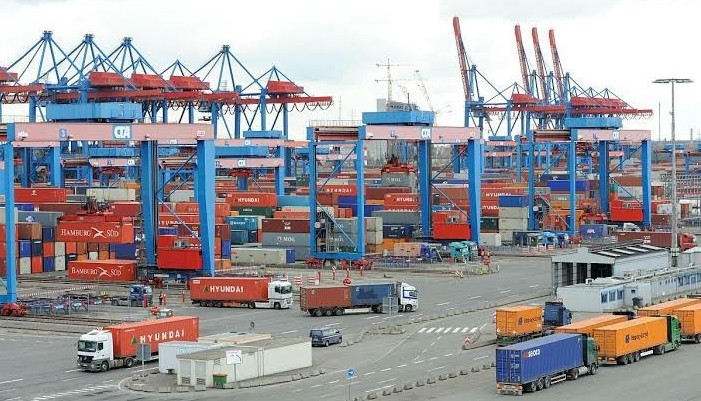
Oluyinka Onigbinde
Nigeria’s import and export performance, as well as its ease of doing business have come under scrutiny as recent statistics have revealed that Nigeria exported only 434 products in 2022 as against 4048 products imported into the country in the same period.
The damning figures reveal that Nigeria remains heavily reliant on imports, with concerning implications for the nation’s foreign exchange, economy and manufacturing.
While delivering a paper at a recent meeting with members of the Association of Nigerian Licensed Customs Agents (ANLCA) Mr Hassan Bello, the immediate past Executive Secretary of the Nigerian Shipper’s Council (NSC) noted that the glaring imbalance paints a clear picture of the country’s import dependency, and raises concern about the nation’s economic stability.
He informed that the export of goods and services accounted for a paltry 14.22% of Nigeria’s Gross Domestic Product (GDP), while imports represented 19.80% of the GDP. He said such lopsided figures indicate the nation’s challenges in fostering self-sufficiency and sustainable economic growth.
Speaking further, Bello noted that trade growth has also been a matter of concern, with Nigeria experiencing a negative growth rate of -5.86%, contrasting sharply with the world’s 1.13% growth during the same period.
Bello stated that the discrepancy raises questions about the country’s professional leadership and its ability to address economic challenges effectively.
Speaking further, he said that the issue of high shipping costs was a notable focal point, even as he cited data from 2021, which revealed that freighting a 40ft container from China to Nigeria costs a staggering $8,500, and significantly higher than the $3,500 and $3,000 charged for shipping to Ghana and Lome, respectively.
He said the exorbitant shipping costs have a direct impact on the cost of goods and services within the country.
Bello further lamented that Nigeria’s performance in ease of doing business index has been less than satisfactory, ranking 145th out of 185 countries in the World Bank’s 2017 report.
He lamented that Nigerian ports’ effectiveness, measured by trading across borders, ranked among the lowest, sitting at a disturbing 183rd position out of 185 countries.
The former boss of the Shippers’ Council added that clearance of imported cargo at Nigerian ports is also a cause for concern, with a substantial 68.7% of imports subjected to physical examination.
He said this has led to delays and inefficiencies in the clearance process, further adding to the high cost of doing business.
Bello further informed that the insurance policy premium for shipping to Nigeria stands at a substantial 1.5%, compared to a significantly lower rate of 0.55% in Europe, Asia, and America.
Bello also pointed out that the challenges posed by poor transportation networks, high shipping company and terminal handling charges (THC), and the annual freight estimated to be between $5 billion to $6 billion all contribute to the high costs of doing business at Nigerian ports.
The domination of the foreign freight forwarding firms and their proxies in Nigeria’s shipping space was another concern raised by him.
In conclusion, Bello urged ANLCA members to set aside their differences and unite in addressing these pressing concerns to promote professional growth and the overall development of the country’s economy.















